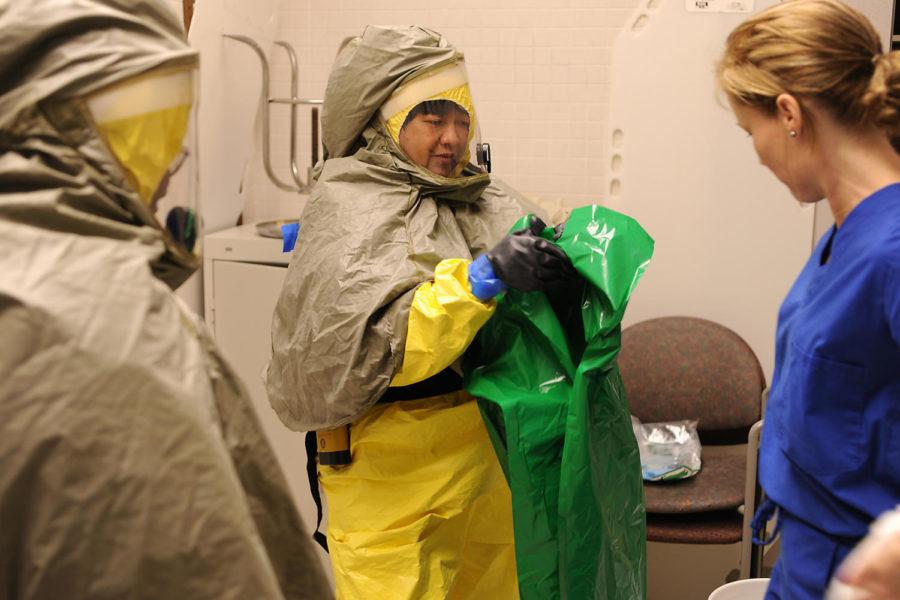Editorial: Protect rights throughout Ebola hysteria
The recent quarantines of U.S. citizens returning from west Africa have caused fear of if the virus may reach other towns.
November 3, 2014
The lines between freedom and security were blurred last week when Kaci Hickox, a Doctors Without Borders nurse, came home from Sierra Leone where she was volunteering to help contain the Ebola outbreak in western Africa. Upon her arrival in New Jersey, she was quarantined over concerns that she might spread the virus after she gave inconsistent body temperature readings, which is an initial symptom of Ebola, between two tests. A third test taken in quarantine at the hospital confirmed that she did not have a fever.
All flights arriving from west Africa are required to land at one of five major U.S. airports, three of which are located in Illinois, New Jersey and New York. Before Hickox returned to the United States, a U.S. doctor returned from the region and traveled around New York City before testing positive for Ebola. The doctor is now in stable condition, and no additional citizens have come forward or tested positive.
However, as a result of the perceived failure of the state and national government to protect the public, the three states set quarantine protocols in place. Hickox is the first person to experience New Jersey’s new quarantine protocol.
Containment protocols such as the ones employed in Illinois, New Jersey and New York are probably the most effective measures available, but they fly directly in the face of the civil liberties of the people who are subjected to them.
There was an immediate public outcry against the decision, including complaints that politicians should not be deciding health protocol, especially when the plans were implemented in such a rapid fashion.
After confirmation that Hickox showed and continues to show no symptoms of Ebola, she returned to her home in Maine. Chris Christie, governor of New Jersey, defended the state’s decision when speaking with reporters from MSNBC.
“I think that upon reflection she will understand that my job is to protect the health and safety of the people of New Jersey and the region. That’s the only reason that I made the decisions that I did, and I wouldn’t make them differently if I had to do it again today,” Christie said.
When she arrived in Maine, Hickox temporarily adhered to the state’s voluntary quarantine procedure but broke the procedure when she held a news conference and went on a bike ride. According to CNN, state health officials went to court to attempt to restrict Hickox to her home, but a judge rejected the proposal because she remains asymptomatic.
There are certainly matters of perspective to be considered on both sides of the argument. One one hand, if Hickox indeed does not have Ebola, as all medical signs indicate, then her cause and argument is as the correct one. However, Christie’s comments were in no way incorrect. His job is indeed to do whatever he possibly can to keep the people of his state safe. If a person with Ebola were to slip through the medical screenings and cause harm to others, it would inevitably be his fault.
The most basic form of Christie’s argument can be described as “the needs of the many outweigh the needs of the few.” However, when the constitutional rights guaranteed to U.S. citizens must be sacrificed in the pursuit of security, a dubious precedent is established. For that reason, mandatory pre-symptom quarantines cannot be the answer for Ebola containment.
Benjamin Franklin once said, “Those who would give up essential Liberty to purchase a little temporary safety deserve neither liberty nor safety.”







